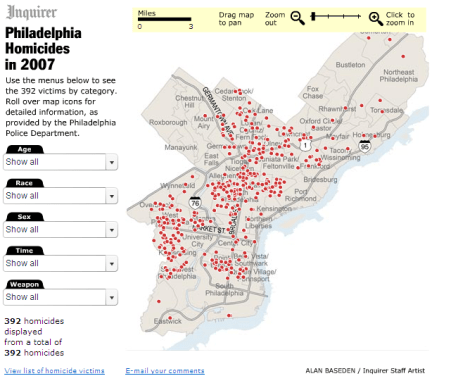My mother died yesterday. I’m proud of the obituary I was able to write for her in our hometown newspaper.
She was a good woman. It’s a shitty thing but everyone has shitty things happen to them.
NEWTON — Carol Wink, 51, died on Wednesday, June 17th at Morristown Memorial Hospital after complications related to a long fought illness.
The beloved wife, mother, sister and aunt was born in the Harding Park neighborhood of the Bronx on Sept. 1, 1957 to William and Geraldine (Howell) Dolan. After growing up in Plainview, Long Island, she moved with her family in 1986 to Sussex County, a rural paradise she came to love. She worked for 18 years as a devoted educator, teaching first and second grade and then reading comprehension at the Sparta Alpine School, where she was named Teacher of the Year in 2001.
Carol is survived by her loving husband, George, with whom she was two months shy of a 30th wedding anniversary; her daughter, Maureen; her son, Christopher; two loving sisters, Eileen and Nancy, and their husbands, Mike Lorio and Joe Cipollone; their children, Daniel and Cassie and Joseph and Matthew; two cherished sisters-in-law, Jeanie and Linda Wink; a strange looking dog and two cats, including her favorite, Milo.
Aside from education, her greatest passions came in the kitchen, using a library of cook books and a knack for experimentation and exploration to craft meals of exceptional regard that will be greatly missed by all, especially her eternally hungry son. The green thumb gardener was known for coaxing her husband into playing with dirt, mulch and plants on big, beautiful Sussex County weekends, as well as incorporating the fruits and vegetables she grew into her favorite meals. She will be remembered best for her passion, humor and eggplant rollatini.
Last August, she was thrilled to make her first trip across the pond, spending a week in London. She recently turned over her constant reading habits to planning a trip to California, showing her love for travel.
She is a 1979 Bachelor’s of Arts graduate from Hofstra University with a Master in the Art of Teaching from Marygrove College and other post-graduate work from Centenary College of New Jersey. She was excited to return to the classroom this fall to use a recently completed Orton Gillingham Teacher Certificate from Farleigh Dickinson University to tutor students suffering with Dyslexia and other reading difficulties.
In September 2005, she was diagnosed with Non-Hodgkin’s Lymphoma, which she battled courageously, including a period of time during which she taught full-time and received regular chemotherapy treatments. Her weakened immune system left her unable to beat a lung inflammation that came in her final weeks.
Funeral services will be held 11 a.m. on Tuesday at the Smith-McCracken Funeral Home, 63 High Street, Newton. Interment will be held at Newton Cemetery. Visitation will be held on Monday from 2 to 4 and 7 to 9 p.m. at the funeral home. The family asks that in lieu of flowers, memorial donations be made to the Leukemia & Lymphoma Society, North Jersey Chapter, 14 Commerce Drive, Suite 301, Cranford, NJ 07016.









